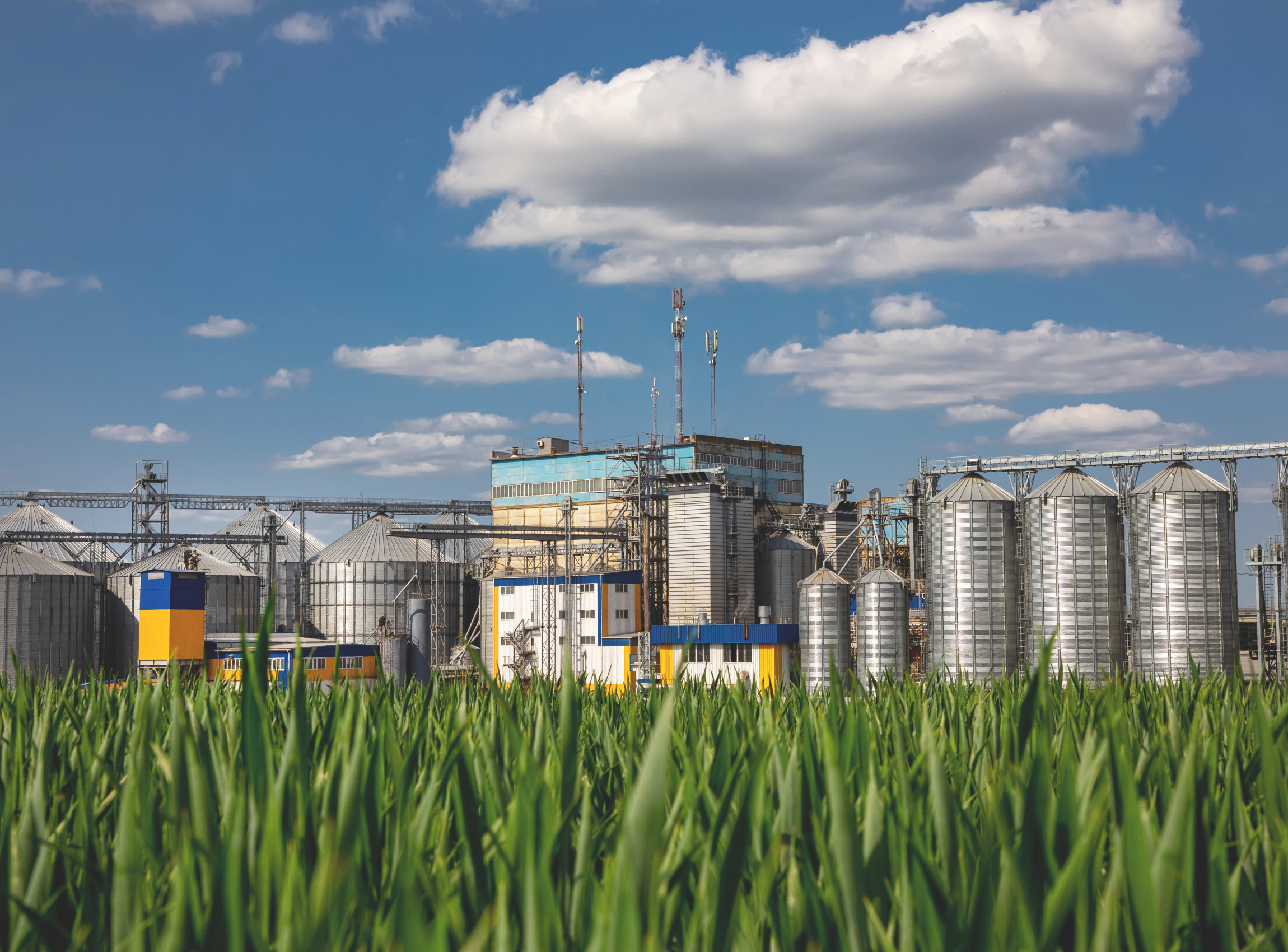Produtividade no Agronegócio: como o ERP SAP ajuda a promover uma visão 360° dos negócios
A produtividade é um tema cada vez mais urgente no Agronegócio. Com as mudanças climáticas intensificando os riscos e a produção agrícola global precisando crescer 60% até 2050 para atender à demanda crescente por alimentos e produtos, o setor enfrenta uma pressão inédita para produzir mais com recursos limitados, como terra e água. Esse crescimento é impulsionado pelo aumento populacional e pela elevação da renda, especialmente em países em desenvolvimento. Além disso, os efeitos das mudanças climáticas e a desigualdade no acesso a tecnologias agravam os desafios, exigindo soluções mais sofisticadas e sustentáveis.
Nesse cenário, tecnologias como o ERP SAP surgem como uma solução essencial, já que esse sistema de gestão conecta todas as partes da operação agrícola, proporcionando uma visão 360° de cada etapa da produção e permitindo um controle mais estratégico e abrangente. Mais do que uma ferramenta de gestão, o ERP SAP auxilia na transformação do Agronegócio em um setor mais eficiente, preparado para integrar práticas modernas e sustentáveis e superar os desafios globais de produtividade.
Mas o que significa, na prática, alcançar uma visão 360° da produção agrícola? Como um sistema como o ERP SAP pode transformar desafios complexos em oportunidades de crescimento? Quais são as reais vantagens para quem adota essas tecnologias?
Acompanhe nosso artigo a seguir para descobrir essas respostas e entender como o ERP SAP pode ajudar a aumentar a produtividade no Agronegócio, favorecendo a competitividade de forma sustentável.
Boa leitura!
Principais desafios de produtividade no Agronegócio
Para entender como o ERP SAP pode transformar o Agronegócio, primeiro é essencial identificar os principais obstáculos que limitam a produtividade no setor. Conhecer esses desafios complexos, que impactam tanto a operação quanto a gestão, permite que o setor se prepare para superá-los de forma estratégica e sustentável.
Abaixo, destacamos os fatores que mais impactam a produtividade no Agronegócio e como eles moldam a necessidade de soluções tecnológicas integradas.
Mudanças climáticas
As mudanças climáticas representam um dos maiores desafios para o Agronegócio. Temperaturas mais altas, aumento da evaporação e mudanças nos padrões de precipitação afetam diretamente as safras. De acordo com a NASA, culturas como milho e trigo enfrentarão grandes desafios nas próximas décadas, com possíveis reduções significativas de rendimento em regiões como América Central, África Ocidental e Ásia Central. Esse impacto climático exige que o setor adote tecnologias que possam monitorar e mitigar essas variáveis.
O ERP SAP oferece a possibilidade de monitorar essas variáveis com maior precisão, permitindo que o setor se adapte mais rapidamente às condições climáticas adversas e implemente estratégias de mitigação.
Alta competitividade no setor
O Agronegócio é altamente competitivo, tanto no mercado nacional quanto internacional. Com margens de lucro cada vez mais apertadas e novas exigências dos consumidores por produtos sustentáveis e rastreáveis, as empresas precisam maximizar a eficiência para se manterem competitivas. Segundo a Organização para a Cooperação e Desenvolvimento Econômico (OCDE), o crescimento da produtividade agrícola precisa ser sustentável para enfrentar a demanda global, mas atualmente ainda há grandes variações de eficiência entre as regiões, o que gera desafios e oportunidades para a inovação.
Um sistema como o ERP SAP ajuda os gestores a centralizar informações e agilizar a tomada de decisões, oferecendo uma vantagem estratégica ao otimizar a produção e reduzir desperdícios, fatores essenciais para manter a competitividade.
Eficiência no uso dos recursos
A pressão por uma produção mais sustentável também exige que o Agronegócio use os recursos de forma mais eficiente. Água, energia e insumos agrícolas são recursos que precisam de monitoramento e controle rigorosos. Um estudo da Environmental Protection Agency (EPA) dos EUA revela que, em algumas regiões, o impacto das mudanças climáticas já reduz a disponibilidade de água e aumenta a competição por recursos, impactando diretamente a produtividade agrícola.
Com o ERP SAP, é possível realizar um controle detalhado do uso desses recursos, promovendo práticas mais econômicas e sustentáveis ao longo de toda a cadeia produtiva.
Gestão integrada de todas as áreas envolvidas na cadeia produtiva
No Agronegócio, uma operação eficiente depende da integração entre várias áreas: desde a plantação e colheita até o transporte e comercialização. No entanto, manter essas áreas alinhadas e bem coordenadas é um desafio, especialmente em operações de grande escala. De acordo com a Food and Agriculture Organization (FAO), a integração de dados e tecnologias ao longo da cadeia produtiva é uma estratégia essencial para reduzir desperdícios e aumentar a eficiência no setor.
O ERP SAP proporciona uma gestão integrada de todas as áreas da cadeia produtiva, centralizando dados e permitindo que os gestores tenham uma visão completa de todas as etapas, o que facilita a coordenação e melhora a eficiência operacional.
Com esses desafios mapeados, fica claro que o Agronegócio precisa de soluções que ofereçam uma visão integrada e em tempo real da operação. Na próxima seção, vamos explorar como a digitalização e o uso de tecnologias avançadas estão revolucionando o setor, trazendo mais competitividade e sustentabilidade.
O que é a digitalização do Agronegócio?
A digitalização está transformando profundamente o Agronegócio, ajudando a aumentar a eficiência, produtividade e sustentabilidade do setor. De acordo com um estudo do Economic Research Service dos EUA, tecnologias digitais como GPS, sensores e sistemas de controle automatizado já são amplamente adotadas em cerca de 40% das áreas agrícolas nos Estados Unidos, enquanto sistemas mais avançados, como drones e análise de dados em tempo real, estão acelerando a precisão e a eficiência na gestão agrícola. Esse movimento permite que o setor responda de maneira proativa às mudanças climáticas, otimize o uso de recursos e ofereça rastreabilidade e controle de qualidade para atender às demandas dos consumidores.
O ERP SAP também é uma dessas ferramentas, permitindo uma gestão estratégica que conecta todas as etapas da produção, facilitando o controle de recursos e a tomada de decisões com base em dados.
A seguir, vamos explorar algumas das principais tecnologias digitais aplicadas no Agronegócio e como elas ajudam a superar os desafios do setor.
Tecnologias digitais aplicadas
A digitalização no Agronegócio é composta por um conjunto de tecnologias avançadas, cada uma com um papel específico para melhorar a produtividade e a eficiência. Confira as ferramentas mais relevantes e como elas estão sendo aplicadas.
- Monitoramento inteligente com sensores e drones: sensores de solo e drones permitem um monitoramento preciso do campo, coletando dados como umidade do solo, qualidade da cultura e até a presença de pragas. Esse monitoramento contínuo possibilita ajustes imediatos, como a irrigação localizada, reduzindo o desperdício de água e fertilizantes.
No ERP SAP, esses dados podem ser integrados para oferecer uma visão centralizada da produção, facilitando uma resposta rápida a problemas em qualquer parte da operação. - Big data e análise preditiva: o uso de big data (conjunto massivo e complexo de dados) no Agronegócio permite que gestores identifiquem padrões e prevejam problemas antes que eles afetem a produtividade. Por exemplo, a análise preditiva ajuda a antecipar condições climáticas extremas e o comportamento de pragas, permitindo o planejamento de ações preventivas.
O ERP SAP integra essa análise diretamente na gestão da produção, transformando dados em informações estratégicas que reduzem riscos e otimizam o uso de recursos. - Integração de dados e rastreabilidade: a rastreabilidade é uma exigência crescente no Agronegócio, fundamental para garantir a qualidade e atender a regulamentações rigorosas. Com o ERP SAP, é possível centralizar informações de todas as etapas da produção, desde a origem das sementes até a distribuição final. Essa visibilidade permite que os gestores acompanhem cada ponto da cadeia produtiva e identifiquem rapidamente qualquer potencial problema ou risco.
Ao integrar todos os dados em um único sistema, o ERP SAP facilita o controle de qualidade, garantindo transparência em cada etapa e permitindo respostas rápidas a auditorias e exigências do mercado. Essa rastreabilidade completa aumenta a confiança do consumidor e fortalece a reputação dos produtos no mercado.
Automação: controle e eficiência
A automação no Agronegócio permite otimizar operações desde o plantio até a colheita, substituindo processos manuais por tecnologias que aumentam a precisão e reduzem desperdícios. Com sistemas de orientação automática, é possível alinhar máquinas agrícolas para plantar e colher com extrema precisão, diminuindo o uso de combustível e maximizando o aproveitamento de cada área plantada. As tecnologias de automação também ajustam automaticamente a aplicação de insumos, garantindo que cada área do campo receba a quantidade exata necessária, o que aumenta a eficiência e reduz custos.
O ERP SAP eleva esses processos ao próximo nível, integrando todos os dados de automação em um único sistema de gestão. Isso permite que os gestores monitorem em tempo real o andamento das operações, identifiquem gargalos e tomem decisões rápidas para corrigir qualquer problema antes que ele afete a produtividade. Além disso, a integração de dados facilita o controle de estoque e a reposição de insumos, garantindo que todas as áreas estejam sincronizadas e que os recursos sejam usados de forma eficiente.
Essas tecnologias de automação, quando integradas pelo ERP SAP, oferecem uma visão 360° e unificada da cadeia produtiva, da produção à gestão, permitindo que o Agronegócio funcione com maior eficiência, menores custos e maior controle sobre cada etapa. Na próxima seção, exploraremos como o ERP SAP integra essas ferramentas para otimizar processos e aumentar a competitividade do setor.
Como o ERP SAP proporciona uma visão 360° no Agronegócio?
Para que o Agronegócio alcance níveis elevados de produtividade e eficiência, é essencial que todas as áreas da cadeia produtiva operem de maneira integrada e coordenada. No entanto, em operações de grande escala, essa integração pode ser desafiadora, com múltiplas etapas que precisam estar sempre em sincronia para evitar desperdícios e maximizar o uso de recursos.
O ERP SAP se destaca ao tornar essa visão 360° possível. A plataforma centraliza informações de todas as etapas da operação em um único sistema, permitindo que gestores acompanhem, em tempo real, o desempenho de setores como plantio, colheita, logística e estoque. Essa integração de dados permite uma tomada de decisões rápida e informada, reduzindo gargalos e antecipando problemas antes que impactem a produtividade. Por meio dessa visão abrangente, os gestores podem, por exemplo:
- Ajustar o cronograma de colheita de acordo com a disponibilidade de transporte, reduzindo custos logísticos;
- Controlar estoques com precisão, evitando tanto o desperdício quanto a falta de insumos;
- Monitorar a qualidade do produto em todas as etapas, assegurando que ele chegue ao consumidor final em perfeitas condições.;
Dessa forma, ao integrar todos esses dados em tempo real, o ERP SAP transforma o Agronegócio em uma operação mais estratégica e sustentável. E essa visão 360° promovida pelo sistema é essencial para manter a competitividade e atender às demandas crescentes do mercado com eficiência.
Vamos agora explorar quais os benefícios específicos dessa visão integrada e como ela impacta a produtividade e rentabilidade do setor Agro?
Benefícios de uma visão integrada e seu impacto na produtividade do Agronegócio
A visão 360° proporcionada pelo ERP SAP traz uma série de benefícios tangíveis para o Agronegócio, otimizando cada etapa da operação e criando um impacto direto na produtividade e na competitividade.
Com uma gestão integrada, é possível alinhar processos, reduzir desperdícios e responder rapidamente a desafios – elementos essenciais para uma operação agrícola eficiente e sustentável. Abaixo, exploramos os principais benefícios dessa visão integrada.
Otimização de processos
Um dos maiores ganhos da visão integrada do ERP SAP é a otimização de processos. Segundo uma pesquisa da McKinsey & Company, a digitalização na agricultura pode aumentar a eficiência em até 25% ao centralizar e automatizar dados e tarefas. Com o ERP SAP, as informações de áreas como plantio, colheita e logística são centralizadas em uma única plataforma, facilitando o planejamento e a execução de atividades sincronizadas, como ajustes de cronograma de produção e transporte, que ajudam a reduzir o tempo ocioso.
Essa otimização não só aumenta a produtividade como também reduz custos operacionais, essencial em um setor com margens de lucro cada vez mais apertadas.
Análise de dados em tempo real
A possibilidade de acessar dados em tempo real é uma vantagem estratégica significativa do ERP SAP. De acordo com a Harvard Business Review, empresas que utilizam dados em tempo real para tomar decisões aumentam em até 30% sua capacidade de resposta a eventos inesperados, uma vez que as informações atualizadas permitem ajustes rápidos. No Agronegócio, esse acompanhamento contínuo permite que gestores monitorem indicadores de desempenho e realizem ajustes em situações críticas, como mudanças climáticas ou variações na demanda.
Essa análise em tempo real torna a gestão mais robusta e proativa, permitindo respostas rápidas a imprevistos e um planejamento de ações preventivas mais eficaz.
Gestão de risco
O ERP SAP também melhora significativamente a gestão de risco no Agronegócio. A visão integrada de toda a operação permite identificar ameaças, como problemas climáticos e variações nos custos de insumos, antes que causem grandes impactos. Dados da Food and Agriculture Organization (FAO) indicam que o monitoramento contínuo de riscos pode reduzir em até 20% os custos relacionados a falhas operacionais e desperdícios. Com dados sobre o clima, o solo e a logística integrados em um único sistema, o ERP SAP possibilita que os gestores antecipem riscos e adotem ações preventivas para mitigar os impactos negativos.
Esse controle de riscos protege o negócio contra perdas inesperadas, aumentando a segurança operacional e a estabilidade financeira da operação.
Como é possível observar, esses dados deixam claro como a visão integrada proporcionada pelo ERP SAP pode transformar o Agronegócio em uma operação mais eficiente, segura e competitiva. Mas você não precisa percorrer esse caminho sozinho: com o apoio da Cast Group Soluções, sua empresa do setor Agro pode implementar essa tecnologia de forma estratégica, contando com uma equipe especializada em soluções SAP para o Agronegócio.
Na Cast Group, contamos toda a experiência necessária para personalizar e adaptar o ERP SAP às demandas específicas do setor, ajudando as operações a se tornarem mais produtivas e sustentáveis. Ao nosso lado, sua empresa estará preparada para superar os desafios do mercado e alcançar um novo nível de competitividade e controle.
Conclusão
A implementação do ERP SAP representa uma mudança estratégica para o Agronegócio, permitindo que as empresas enfrentem os desafios de produtividade e se mantenham competitivas em um cenário cada vez mais dinâmico. Com um processo de digitalização bem implementado, as operações do setor podem alcançar novos níveis de controle e eficiência, com benefícios concretos, como:
- Automatização dos processos: ao centralizar e automatizar tarefas repetitivas, o ERP SAP libera as equipes para focarem em decisões estratégicas, aumentando a produtividade e a eficiência de toda a operação;
- Decisões rápidas e embasadas em dados: com acesso em tempo real a informações integradas, o ERP SAP possibilita uma tomada de decisão ágil e precisa, um diferencial valioso em um setor que exige respostas rápidas para se adaptar a fatores como condições climáticas e mudanças de mercado;
- Redução de custos e desperdícios: a gestão integrada do ERP SAP otimiza o uso de insumos e recursos, promovendo uma operação mais sustentável e econômica, essencial para lidar com as crescentes exigências de sustentabilidade.
Em resumo, investir no ERP SAP não é apenas uma estratégia para aumentar a produtividade: é uma preparação para um futuro mais adaptável e resiliente em um setor que enfrenta desafios constantes. Com essa visão 360° que a automação e a análise de dados em tempo real proporcionam, o Agronegócio pode ganhar operações mais robustas e preparadas para transformar esses desafios em oportunidades, garantindo eficiência e crescimento sustentável ao longo do tempo.



